Feature
-
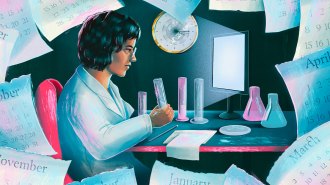 Science & Society
Science & SocietyHow our SN 10 scientists have responded to tumultuous times
COVID-19, social justice movements and the realities of climate change have given our Scientists to Watch new perspective.
-
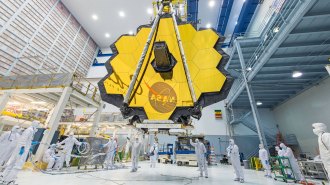 Astronomy
AstronomyWhen James Webb launches, it will have a bigger to-do list than 1980s researchers suspected
The James Webb Space Telescope has been in development for so long that space science has changed in the meantime.
-
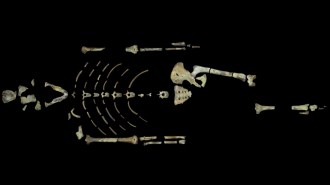 Chemistry
ChemistryRadiometric dating puts pieces of the past in context. Here’s how
Carbon dating and other techniques answer essential questions about human history, our planet and the solar system.
By Sid Perkins -
 Climate
ClimateRice feeds half the world. Climate change’s droughts and floods put it at risk
Rice provides sustenance for billions who have no alternative, and climate change threatens to slash production. Growers will need to innovate to provide an important crop as climate whiplash brings drought and floods to fields worldwide.
By Nikk Ogasa -
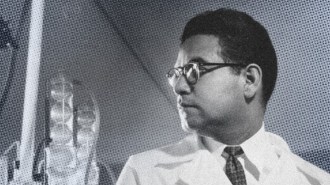 Chemistry
ChemistryLuis Miramontes helped enable the sexual revolution. Why isn’t he better known?
By synthesizing norethindrone, one of the first active ingredients in birth control pills, Luis Miramontes helped usher in the sexual revolution.
By Carmen Drahl -
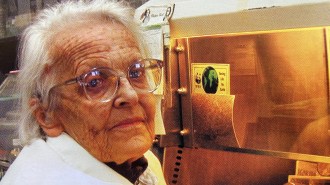 Health & Medicine
Health & MedicineBy taking on poliovirus, Marguerite Vogt transformed the study of all viruses
She pioneered the field of molecular virology with her meticulous lab work and “green thumb” for tissue culture.
-
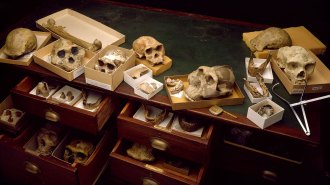 Humans
HumansFossils and ancient DNA paint a vibrant picture of human origins
Paleoanthropologists have sketched a rough timeline of how human evolution played out, centering the early action in Africa.
By Erin Wayman -
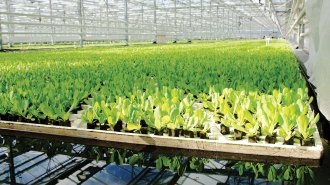 Agriculture
AgricultureCold plasma could transform the sustainable farms of the future
Physicists have been working on ways to use the power of plasma to boost plant growth and kill pathogens.
-
 Psychology
PsychologyPerspective-changing experiences, good or bad, can lead to richer lives
Happiness or meaning have long been seen as keys to the “good life.” Psychologists have now defined a third good life for people leading rich psychological lives.
By Sujata Gupta -
 Astronomy
AstronomyHow radio astronomy put new eyes on the cosmos
A century ago, radio astronomy didn’t exist. But since the 1930s, it has uncovered cosmic secrets from planets next door and the faint glow of the universe’s beginnings.
-
 Science & Society
Science & SocietyGender-affirming care improves mental health for transgender youth
Several state legislatures have taken steps to restrict access to gender-affirming health care for transgender adolescents. That goes against medical guidelines.
-
 Astronomy
AstronomyThe definition of planet is still a sore point – especially among Pluto fans
In the 15 years since Pluto lost its planet status, scientists have continued to use the definition that works for them.